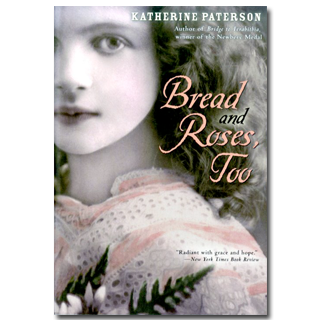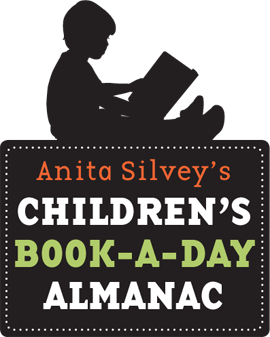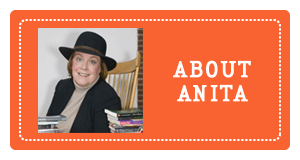
A FEW OTHER EVENTS FOR
SEPTEMBER 5:
- Happy Birthday Paul Fleishman, (Bull Run, Joyful Noise: Poems for Two Voices, Seedfolks).
- It’s the birthdate of the Wild West outlaw Jesse James (1847-1882).
- On the Road by Jack Kerouac was published on this day in 1957.
- The first ever Labor Day parade is held in New York City, 1882. Read Parade by Donald Crews.
- National Waffle Week kicks off today. Read Everything On a Waffle by Polly Horvath.
- It’s Be Late for Something Day. But please get your books back to the library on time!
- It’s also, officially, Cheese Pizza Day.
Today, on Labor Day, I want to highlight a work of historical fiction for children, Katherine Paterson’s Bread and Roses, Too, that will help young readers understand the historical background of the day. As a well-known poster proclaims, “The Labor Movement. The Folks Who Brought You the Weekend.” But almost nothing exists in books for children to help explain the events of the first part of the twentieth century, when workers fought for fair pay and rights.
Centered around the events of the Lawrence, Massachusetts, labor strike in the textile mills, which became known as the “Bread and Roses, Too,” strike, the book brilliantly re-creates the life of workers in this era—the poverty, hunger, bad conditions, and early death. The story alternates between two protagonists, Rosa, whose mother and sister work in the mills as she tries to get an education, and Jake Beale, who has faked papers to labor in the mills so that he can support his drunken father.
As cries of “Short pay, all out,” inspire the workers, they sing and chant, “We shall not be moved.” Both Rose and Jake get swept up in the labor strike. Rosa frets over what will happen to their already impoverished family. Jake considers becoming a scab but manages to stay away from the mills and from the wrath of his father. However, in one particularly chilling scene, when Jake manages to get enough money to bring his father liquor, his father beats Jake until blood seeps all over his clothes.
Eventually, because the International Workers of the World, the Wobblies, get behind the strike and provide money and food, the families are able to send their children to New York, Philadelphia, and Barre, Vermont, to be cared for by other Labor Union members. Rosa boards a train to Barre, only to find Jake stowed away there. His father is now dead, and Jake fears that he will be sent to an orphanage or even accused of killing him. Fortunately for these two scarred children, a loving Italian family takes them into their hearts and home and helps them heal from the trauma caused by the strike.
In Bread and Roses, Too, Katherine Paterson makes the poverty of these children, their lack of food and clothing, palpable and real. I was constantly hungry while reading the first part of the book, and excited, just like the children, in the feast finally given to them in Barre. She also shows what can happen when human beings band together and help one another. In a three-handkerchief ending, Rosa heads back to the family she loves—and Jake has a future that gives him reason to hope. Grounded in superb historical research, which Paterson shares in the end, the book goes a long way to explaining why we celebrate Labor Day weekend.
Those near Lawrence, Massachusetts, might want to attend the annual Bread and Roses Festival held every year on Labor Day. I hope that all my readers are able to have a respite today from their own labors.
Here’s a passage from Bread and Roses, Too:
Rosa forced herself to keep her head up and listen to the teacher. It was hard to pay attention, especially since breakfast had been only dry bread with a smear of molasses. Granny Jarsalis might give her cabbage soup for dinner, if the old woman could borrow a cabbage leaf or two from one of her friends. Oh, how Rosa longed for Mamma’s Rigatoni with tomato sauce seasoned with a bit of meat or even the cheese ravioli that Mrs. Marino used to swap on Sundays for some of the rigatoni. Their balconies were so close that Mamma would just lean over and hand her dish to Mrs. Marino, and Mrs. Marino would hand hers back.
Originally posted September 5, 2011. Updated for .






Shared this with my daughter Devin and her Mount Holyoke College grad friends. MoHo women sing “Bread & Roses” during their Laurel Parade, a highlight of Graduation week when alumni march to the College founder Mary Lyon’s memorial, carrying a continuous laurel wreath, grouped by class, dressed all in white! Gorgeous and moving! They pay respect to the the women who fought to make their education and careers possible.
I love the cover of this book. The photo of the young girl looks so much like the author……or the way I imagine she looked when she was a young girl…..do you know if it IS KP, Anita?
Leave it to you an Katherine Paterson to make the Labor Day holiday real and important for us who merely revel in the joy of waking up late.
Sandy: I don’t think do. But I will doublecheck on this. It is a very attractive jacket.